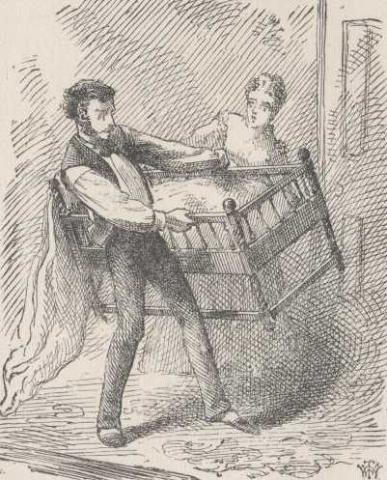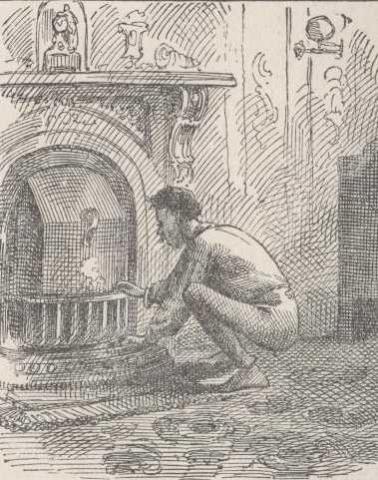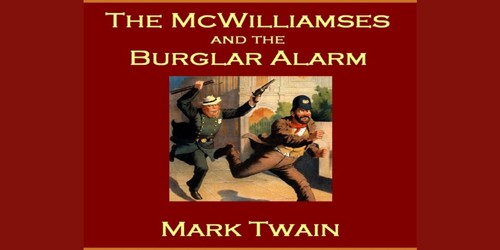Copyright 2020 by Gary L. Pullman
Like the frontier itself, the newspapers of the Wild West weren't all that tame. Whether the content was news, entertainment, or even advertisements, the material was apt to be intriguing. Sometimes sensational, occasionally humorous, and, more often than not, a bit tongue in cheek, the newspapers' stories were, like its promotional copy, were welcome in prairie towns, on the high plains, and in wilderness locations far from home or, for that matter, civilization itself.
Newspapers allowed men and women on the frontier to keep abreast of what was happening in the rest of the country and enabled them to receive goods they couldn't always easily find in their own communities, if at all.
A survey of even one newspaper of the wild West shows fairly well what the others of its kind printed for its eager readers and, in our own day, offers us a glimpse of the life and times of the men and women who braved life on the edge of American civilization. Occasionally, the advertisements especially show the more devious side of human nature as well, just as the humor pokes fun at the absurdities or personal and social behavior.
The January 19, 1895, issue of The Courier, a newspaper that provided more entertainment than news, it appears, bore, among its other sundry contents, George Moss's light verse, “A Half-back from Wayback,” concerning a dude lately arrived on the Western frontier. The tenderfoot in question is “a young Yale graduate” who has taken the suggestion, attributed, by Josiah Bushnell Grinnell, its alleged recipient, to famed newspaper editor Horace Greeley, and gone West—in fashionable dress, yet:
He was a young Yale graduate
And he hied him to the west.
Oblivious of fear or fate
And fashionably dressed.
He ends up in Santa Fe, at “Dutchy's restaurant,” where he catches the eye (or eyes) of several frontiersmen who, each independently of the other, but unanimously, decide the newcomer “must go”:
He landed out a Santa Fe
And captured the town by storm,
Though naught he said, or didn't say
But chiefly because of his form.
On night in Dutchy's restaurant
Assembled a famous crowd:
Shanks, Deep Gulch Mike and Sandy Grant;
Red Thompson and Aleck Dowd.
A lawyer chap they called the Judge,
And Billings of Navajo;
Each pledged the other in Dutchy's budge
That the tenderfoot must go.
When the dude refuses “big Aleck Dowd's offer to have a drink with him, Dowd jerks his gun, demanding that the Easterner change his mind; instead, the tenderfoot disarms Dowd, breaking both the gunman's arm and the mirror into which the rowdy's liberated pistol flies:
Then Dowd, advancing, pulled his gun
And remarked in sneering tones:
“You'll take a drink, or they'll be fun,
Likewise some blood and groans.”
And sudden as the lightning's flash
Our youth worked the elbow charm;
The pistol flew through the mirror, crash!
And Dowd had a broken arm.
One of the others, Shank, by name, next flings himself upon the newcomer and is tackled for his trouble, while the intended victim's knee causes a third attacker, Billings to throw “up blood.” Apparently, the dandy fells Deep Gulch Mike, who splits his head open “on a stone spittoon.” Sandy Grant is knocked out, and Red Thompson, now thoroughly unnerved, beats a hasty retreat. Only the lawyer among the attackers is left, but the tenderfoot soon dispatches him, too, tossing the attorney over the restaurant's bar.
Amazed, Pete, the bartender, asks his guest how he managed to defeat seven of the West's worst scoundrels. If the poem's title hasn't given away the punchline, the student's reply makes clear the incident's “snapper”: “They were easy meat/ I've played on our football team.”
Wild though it may be, the West, it seems, is no match for a Yale Tiger!
The Courier itself, which was “published every Saturday” in Lincoln, Nebraska, offered itself at the rates of $2.00 per year, $1.00 for six months, 50 cents for three months, 20 cents for a month, or five cent per single copy, promising subscribers that only “a limited number of advertisements will be inserted.” The copy posted by The Library of Congress on its Chronicling America website doesn't bear out the veracity of the vow: five of the issue's twenty pages, or twenty-five percent of the publication, contain advertisements.
The advertisements, which might not have been of great interest, in their day, to the newspaper's readers, are more intriguing today, perhaps, now that time has put some distance between the wild and woolly West of yesteryear and the high-tech times in which we live our lives at present. The grocers Hotaling & Son make it clear that they cater to “family trade only,” as a consequence of which “their goods are the nicest and freshest in the market,” suggesting that, were they to deal also with commercial trade, their sundries might not be quite as nice or fresh.
Likewise, the Merchant's Hotel in Omaha pays “special attention to state trade, guest and commercial travelers.” The rest, we guess, can go to hell.
Presumably, Drs. Starkey & Palen, who offer to heal the sick and make strong the weak, have themselves been “sick or debilitated,” because, it is from their “own experience of twenty-five years” that they know that their Compound Oxygen is not just another dubious remedy, but one that actually works, and, to prove it, they offer a two-hundred page volume that details, with “numerous testimonials,” the efficacy of Compound Oxygen, not of its cures, mind you, but of its “cues” of no end of complaints, including “asthma, beonchitis [whatever that may be], consumption, catarrh, rheumatism, nervous prostration, neuralgia,” and whatnot. The physicians conclude their advertisement with a cautionary statement, urging readers to avoid fraudulent imitations and “disappointment and loss of money, as there is but one genuine Compound Oxygen.”
There's also good news, disguised, as it were, as another advertisement, in the form of a testimonial by James W. Goss, a likeness of the gentleman accompanying his statement, in the off-chance that no one has ever heard of him. “Gentlemen—I was pronounced by my home physician [name withheld] as having tuberculosis, and I went South [odd: Doc Holliday's physician recommended the West] without any apparent benefit.” The Southern climate, it appears, was unable to cure him of tuberculosis, but, glory be!, he found a remedy, not in climate, but in Shiloh's Consumption Cure, “and it's results have been wonderful!” One might even venture, without exaggeration, perhaps, to say miraculous. Is there any doubt, any at all, that the good Mr. Goss would “cheerfully recommend it to any one suffering from lung trouble”? The recommendation of this astounding cure alone is worth any number of years' subscriptions to The Courier!
The last page of the issue flanks a center column of amusing anecdotes with advertisements extolling the virtues of various snake oil products, one of which advertisements, for Ayers Sarsaparilla, states that it strengthened a ten-year-old boy (who “declines to give his name to the public,” most likely because he exists only in the mind of the copywriter who created him). The cure came in the proverbial nick of time, as the youngster had been told that he was too weak ever to walk and was, indeed, certain to die. Death might have been the least of the horrors his disease would visit upon him, the child suggests. A “gathering,” he says, “formed and broke under my arm.” (He doesn't say what, exactly, the “gathering” was, but it sounds ominous.) When he “hurt his finger,” he testifies, the digit somehow “gathered and threw out pieces of bone,” a complication which also sounds nothing short of dire. The consumption, which had killed the unfortunate's “mamma” when he was but “one year old” wasn't through with him yet, for, if he broke his skin, the injury “was sure to become a running sore.” In vain, he took “lots of medicine,” but it wasn't until he tried Ayers Sarsaparilla that he found a cure. “It has made me well and strong,” the child declares, and Dr. J. C. Ayer & Co. of Lowell, Mass., assures their prospective patients that the sarsaparilla that “cures others, will cure you.”
Another advertisement reveals a miracle cure at least as astounding and wonderful as that of Ayer's Sarsaparilla. “Dr. W. Queen, “The Specialist,” portrait included, all but guarantees The Courier's readers that his “scientific treatment and removal [of cancers] in twenty minutes without knife, pain or loss of a drop of blood” cures “Piles and Tumors . . . Catarrh Throat, Lungs, Heart and Nervous disability” as well as “diseases of the Stomach, Kidney, Liver, Blood, and Disease of Women,” which have been the good doctor's “specialty for thirty-five years.” He has also “restored hearing to the deaf and sight to the blind,” but there is no mention of his having raised the dead back to life. His secret seems to be electrical current, because he describes himself as “Dr. Queen, the Electrician” and practices his—well, whatever it is—in his “Institute and Electric Bath Rooms” in downtown Lincoln.
One advertisement, by F. J. Chenney & Co. of Toledo, Ohio, even goes so far as to offer $100 “reward” to anyone their product, Hall's Catarrh Cure, “fails to cure” and invites readers to “send for list of Testimonials.”
With such extravagant claims as these advertisements proclaim, it is little wonder that the humorous quips and anecdotes listed between them fail to compete. One such item, “Uncertain,” for example, courtesy of the Detroit Tribune reads:
They stood still and looked at her.
“Do you not,” they asked, “want to be a lady when you grow up?”
Their child gazed into their face wonderingly.
“Forsooth,” she answered, brushing the tangled curls away from her sad, sweet face. “The way styles are going I know not what to say.”
No, she would not commit herself in advance to the fashions.
Cute? To be sure. Sweet? Undoubtedly. But how can even so precious and dulcet a vignette as this vie with the melodramatic and sensational accounts of miracles that hem it in on both sides?





















